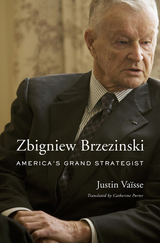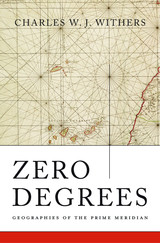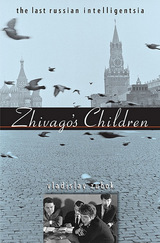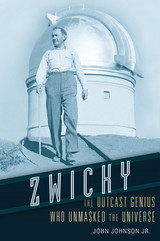11 start with Z start with Z

As National Security Adviser to President Jimmy Carter, Zbigniew Brzezinski (1928–2017) guided U.S. foreign policy at a critical juncture of the Cold War. But his impact on America’s role in the world extends far beyond his years in the White House, and reverberates to this day. His geopolitical vision, scholarly writings, frequent media appearances, and policy advice to decades of presidents from Lyndon Johnson to Barack Obama made him America’s grand strategist, a mantle only Henry Kissinger could also claim.
Both men emigrated from turbulent Europe in 1938 and got their Ph.D.s in the 1950s from Harvard, then the epitome of the Cold War university. With its rise to global responsibilities, the United States needed professionals. Ambitious academics like Brzezinski soon replaced the old establishment figures who had mired the country in Vietnam, and they transformed the way America conducted foreign policy.
Justin Vaïsse offers the first biography of the successful immigrant who completed a remarkable journey from his native Poland to the White House, interacting with influential world leaders from Gloria Steinem to Deng Xiaoping to John Paul II. This complex intellectual portrait reveals a man who weighed in on all major foreign policy debates since the 1950s, from his hawkish stance on the USSR to his advocacy for the Middle East peace process and his support for a U.S.-China global partnership. Through its examination of Brzezinski’s statesmanship and comprehensive vision, Zbigniew Brzezinski raises important questions about the respective roles of ideas and identity in foreign policy.

In 1952 Senator Joseph McCarthy included Zechariah Chafee’s name on a list of seven persons he called “dangerous to America.” How could this happen to a man whose life was filled with the quiet grace of achievement as a scholar of the law? In the first biography of this distinguished American, Donald Smith portrays Chafee as temperamentally conservative, only accidentally a defender of radicals and a civil rights advocate.
Chafee is most remembered for his contributions to First Amendment scholarship, including the classic Freedom of Speech, published in 1920 [and revised and republished in 1941 as Free Speech in the United States]. He publicly criticized the Justice Department prosecutions under the Espionage and Sedition Acts; appeared in court on behalf of Communists fighting deportation; and was president of a commission for the abolition of the death penalty. He served as vice chairman of the Commission on Freedom of the Press (the Hutchins Commission) and continued his public service when appointed to the United Nations Subcommission on Freedom of Information and of the Press.
Yet Chafee, who put his Harvard professorship in jeopardy more than once, never chose to be or perceived himself to be a controversial public figure. Preeminently a man of ideas, he spent most of his life teaching—at times applying both mathematical formulations and Greek philosophical theories to questions of law. This perceptive intellectual biography brings to life the story of a scholar caught up in the dramatic political events of his time.

Space and time on earth are regulated by the prime meridian, 0°, which is, by convention, based at the Royal Observatory, Greenwich. But the meridian’s location in southeast London is not a simple legacy of Britain’s imperial past. Before the nineteenth century, more than twenty-five different prime meridians were in use around the world, including Paris, Beijing, Greenwich, Washington, and the location traditional in Europe since Ptolemy, the Canary Islands. Charles Withers explains how the choice of Greenwich to mark 0° longitude solved complex problems of global measurement that had engaged geographers, astronomers, and mariners since ancient times.
Withers guides readers through the navigation and astronomy associated with diverse meridians and explains the problems that these cartographic lines both solved and created. He shows that as science and commerce became more global and as railway and telegraph networks tied the world closer together, the multiplicity of prime meridians led to ever greater confusion in the coordination of time and the geographical division of space. After a series of international scientific meetings, notably the 1884 International Meridian Conference in Washington, DC, Greenwich emerged as the most pragmatic choice for a global prime meridian, though not unanimously or without acrimony. Even after 1884, other prime meridians remained in use for decades.
As Zero Degrees shows, geographies of the prime meridian are a testament to the power of maps, the challenges of accurate measurement on a global scale, and the role of scientific authority in creating the modern world.


Among the least-chronicled aspects of post–World War II European intellectual and cultural history is the story of the Russian intelligentsia after Stalin. Young Soviet veterans had returned from the heroic struggle to defeat Hitler only to confront the repression of Stalinist society. The world of the intelligentsia exerted an attraction for them, as it did for many recent university graduates. In its moral fervor and its rejection of authoritarianism, this new generation of intellectuals resembled the nineteenth-century Russian intelligentsia that had been crushed by revolutionary terror and Stalinist purges. The last representatives of the Russian intelligentsia, heartened by Khrushchev’s denunciation of Stalinism in 1956, took their inspiration from the visionary aims of their nineteenth-century predecessors and from the revolutionary aspirations of 1917. In pursuing the dream of a civil, democratic socialist society, such idealists contributed to the political disintegration of the communist regime.
Vladislav Zubok turns a compelling subject into a portrait as intimate as it is provocative. The highly educated elite—those who became artists, poets, writers, historians, scientists, and teachers—played a unique role in galvanizing their country to strive toward a greater freedom. Like their contemporaries in the United States, France, and Germany, members of the Russian intelligentsia had a profound effect during the 1960s, in sounding a call for reform, equality, and human rights that echoed beyond their time and place.
Zhivago’s children, the spiritual heirs of Boris Pasternak’s noble doctor, were the last of their kind—an intellectual and artistic community committed to a civic, cultural, and moral mission.

This book explores the issues of nation and modernity in China by focusing on the work of Zhou Zuoren (1885–1967), one of the most controversial of modern Chinese intellectuals and brother of the writer Lu Xun. Zhou was radically at odds with many of his contemporaries and opposed their nation-building and modernization projects. Through his literary and aesthetic practice as an essayist, Zhou espoused a way of constructing the individual and affirming the individual’s importance in opposition to the normative national subject of most May Fourth reformers.
Zhou’s work presents an alternative vision of the nation and questions the monolithic claims of modernity by promoting traditional aesthetic categories, the locality rather than the nation, and a literary history that values openness and individualism.



Zouping offers important general lessons for the study of China's rural transformation. The authors in this volume, all participants in a unique field research project undertaken from 1988 to 1992, address questions that are far from simple and about which there is some controversy.
The questions are grouped around two issues. The first is the role of local governments as economic actors. What is this role, how have they played it, and how can we explain their behavior? Have they dominated rural economies through public ownership of industry and local planning, or has the role of local governments diminished with the rise of market transactions and private ownership? The second issue is market reform and inequality. Have rural cadres enjoyed income advantages in the new market environment? Has the provision of such collective services as education and health care declined, leading to new forms of inequality?
The chapters on the role of local government all point to a single conclusion: one cannot explain the rapid development of Zouping without reference to the role of local governments and of local government officials as economic actors. Scholarly writings about the "transitional economies" have often ignored or distorted this aspect of China's reform experience. On the second issue, changes in inequality owing to market reform, the authors present mixed findings but contribute rich new data to the research on this issue.


“A fitting biography of one of the most brilliant, acerbic, and under-appreciated astrophysicists of the twentieth century. John Johnson has delved deeply into a rich and eventful life, and produced a rollicking account of how Fritz Zwicky split his time between picking fights with his colleagues and discovering amazing things about our universe.”—Sean Carroll, author of The Big Picture
Fritz Zwicky was one of the most inventive and iconoclastic scientists of his time. He predicted the existence of neutron stars, and his research pointed the way toward the discovery of pulsars and black holes. He was the first to conceive of the existence of dark matter, the first to make a detailed catalog of thousands of galaxies, and the first to correctly suggest that cosmic rays originate from supernovas.
Not content to confine his discoveries to the heavens, Zwicky contributed to the United States war against Japan with inventions in jet propulsion that enabled aircraft to launch from carriers in the Pacific. After the war, he was the first Western scientist to interview Wernher von Braun, the Nazi engineer who developed the V-2 rocket. Later he became an outspoken advocate for space exploration, but also tangled with almost every leading scientist of the time, from Edwin Hubble and Richard Feynman to J. Robert Oppenheimer and Subrahmanyan Chandrasekhar.
In Zwicky, John Johnson, Jr., brings this tempestuous maverick to life. Zwicky not only made groundbreaking contributions to science and engineering; he rose to fame as one of the most imaginative science popularizers of his day. Yet he became a pariah in the scientific community, denouncing his enemies, real and imagined, as “spherical bastards” and “horses’ asses.” Largely forgotten today, Zwicky deserves rediscovery for introducing some of the most destructive forces in the universe, and as a reminder that genius obeys no rules and has no friends.
READERS
Browse our collection.
PUBLISHERS
See BiblioVault's publisher services.
STUDENT SERVICES
Files for college accessibility offices.
UChicago Accessibility Resources
home | accessibility | search | about | contact us
BiblioVault ® 2001 - 2024
The University of Chicago Press









